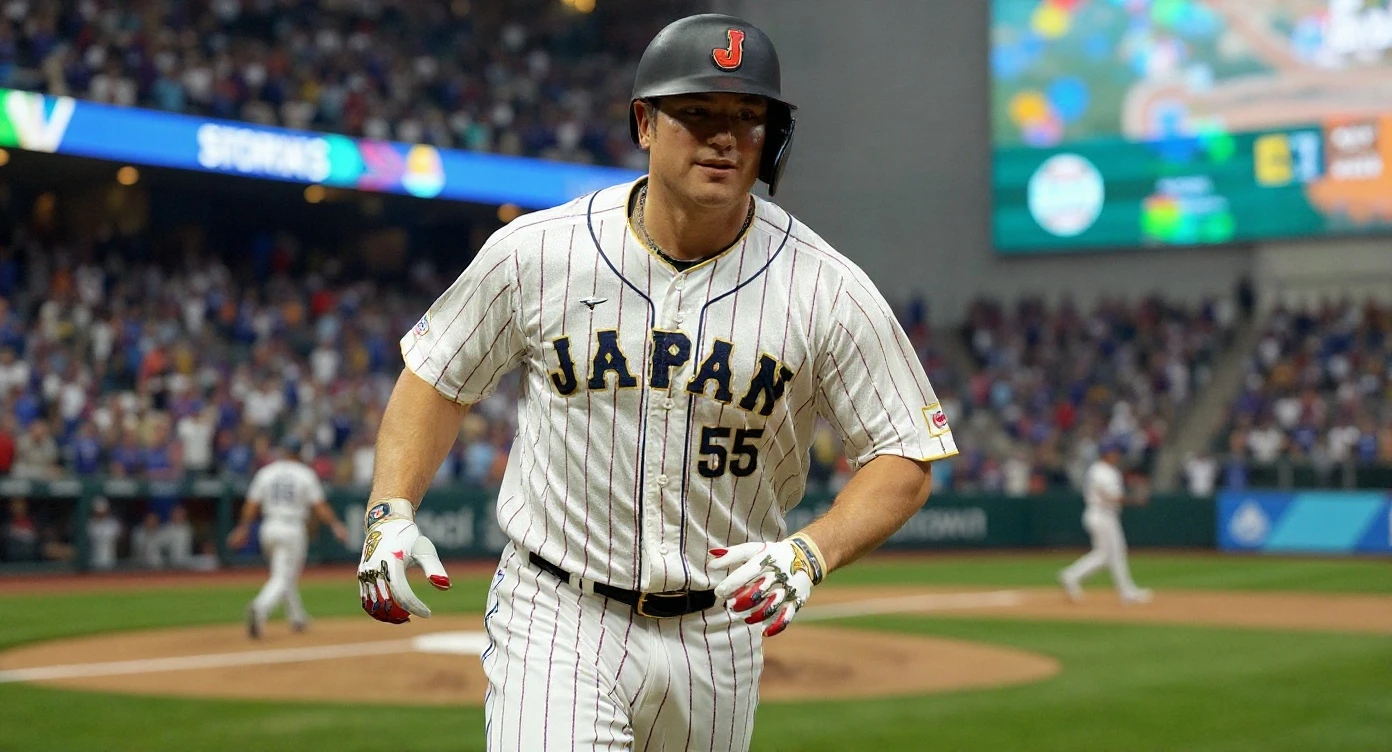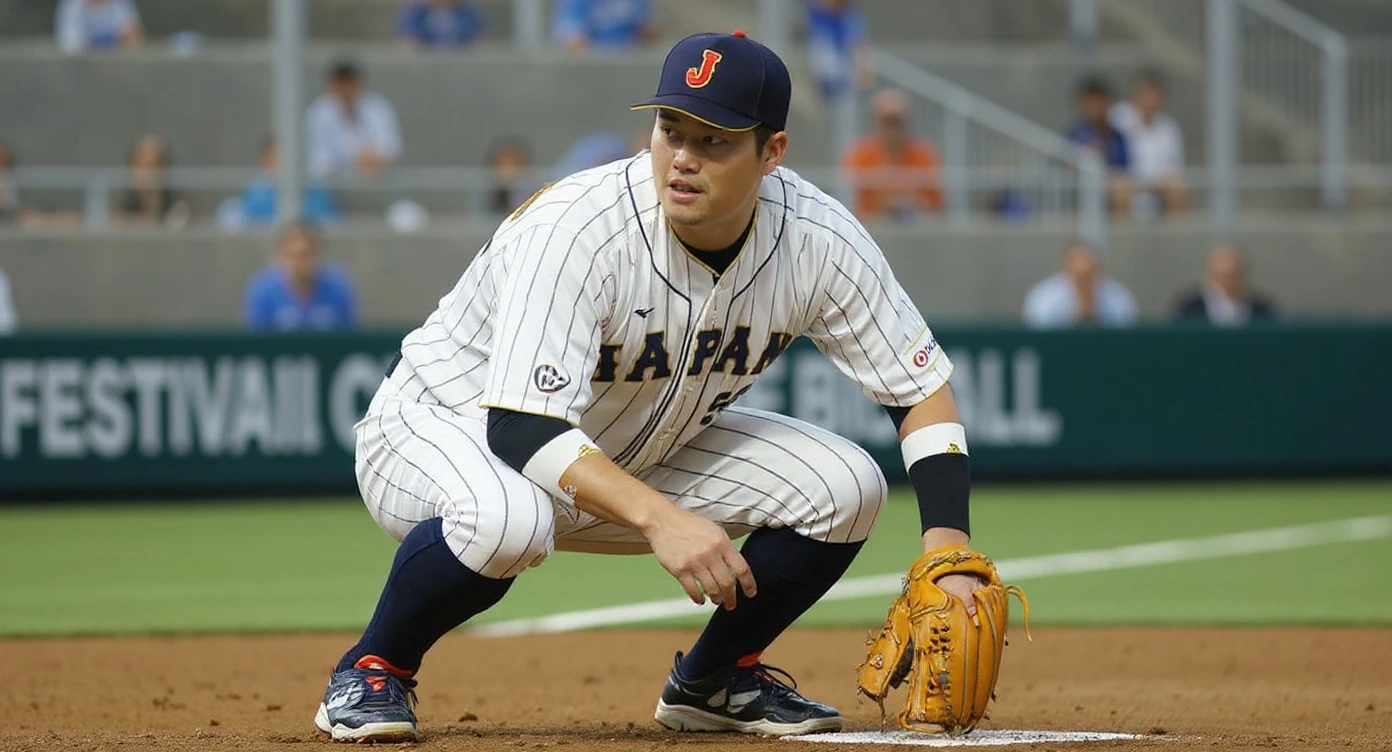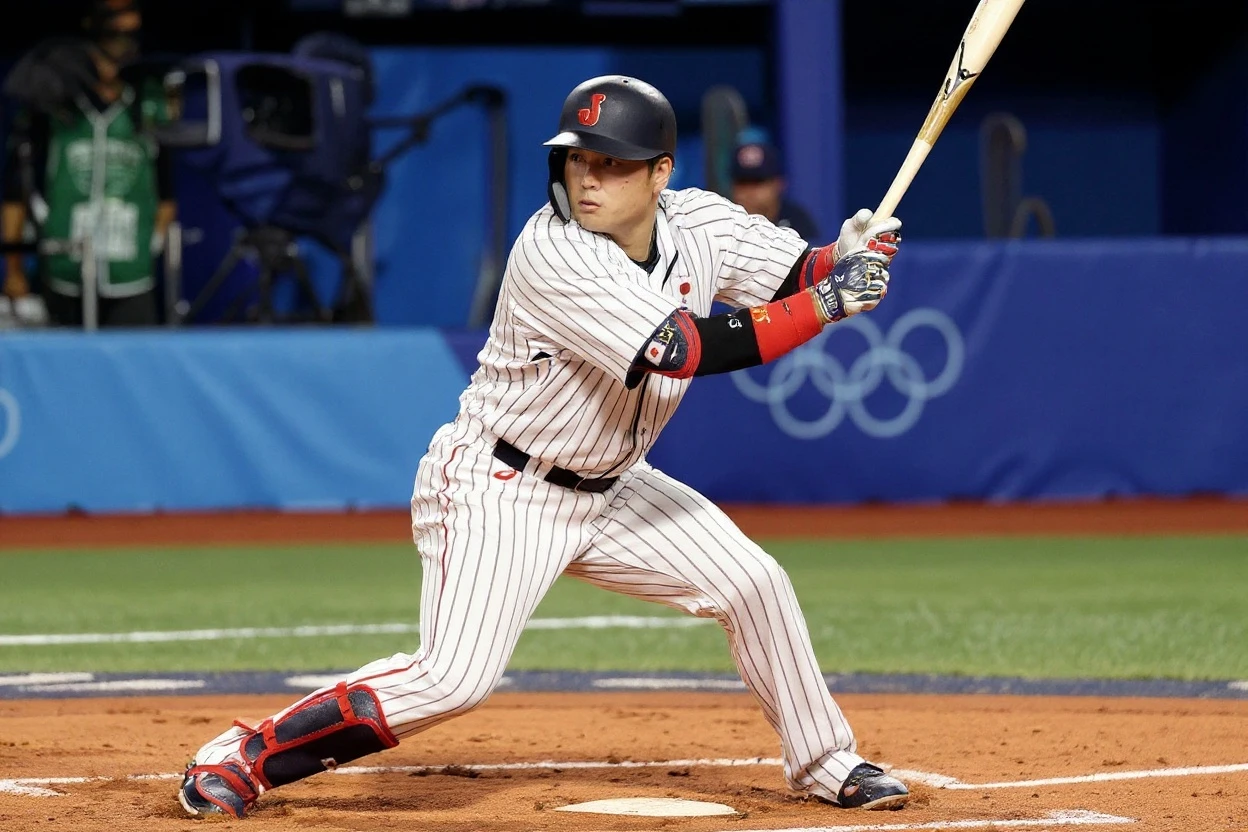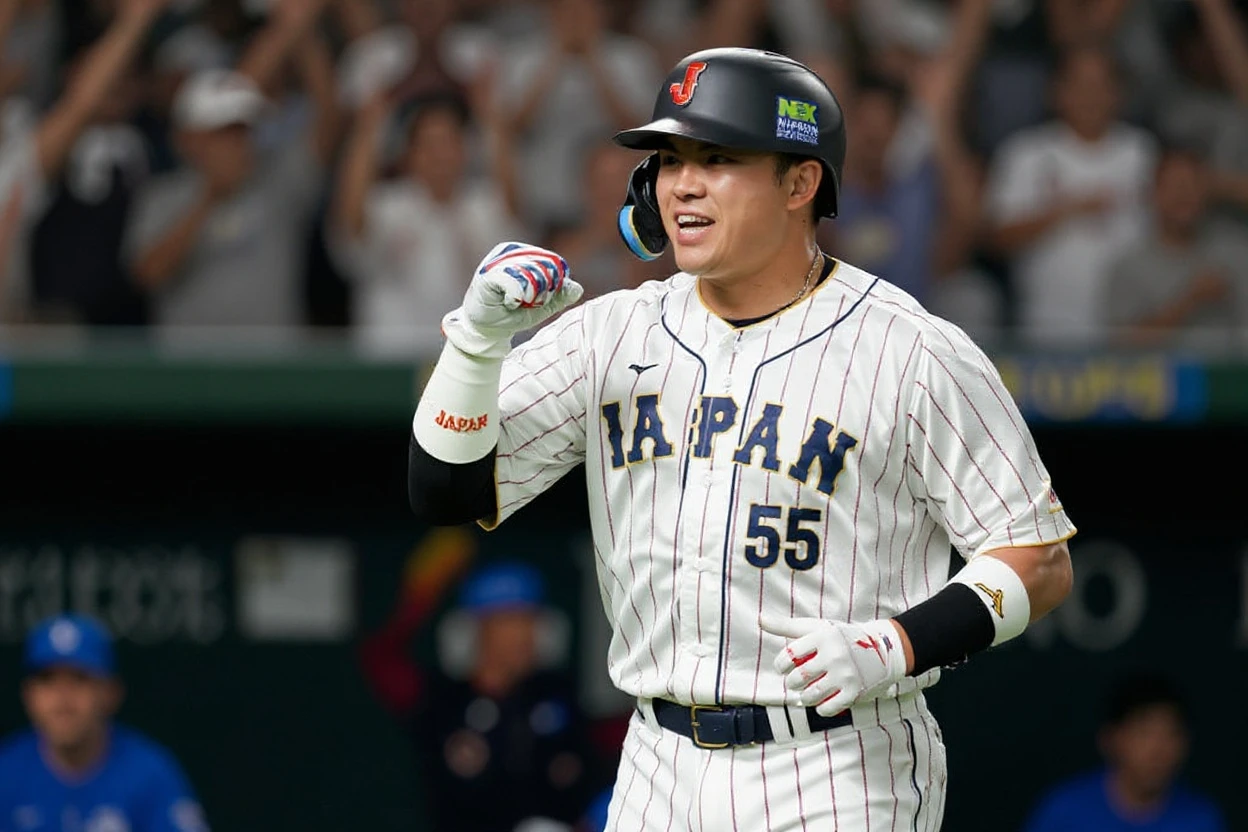In the world of baseball, few names have generated as much buzz as Munetaka Murakami, the 25-year-old Japanese slugger who has set the stage for an electrifying free agency frenzy. With his prodigious power and record-breaking exploits, Murakami is poised to become the latest international sensation to grace the Major League Baseball (MLB) stage.
Want to know what people are really saying? Don’t miss the buzz from Reddit at the end!
The Slugger Who Shattered Records: Munetaka Murakami’s Meteoric Rise
In the annals of Japanese baseball, few records seemed as untouchable as Sadaharu Oh’s single-season home run mark of 55, set in 1964 when the Beatles were topping charts and baseball was still played in black and white. For nearly six decades, that number stood as a monument to power hitting excellence in Nippon Professional Baseball. Then came Munetaka Murakami, a left-handed slugger with the kind of raw power that makes scouts forget how to breathe. In 2022, at just 23 years old, Murakami didn’t just break Oh’s record—he obliterated it, launching 56 home runs and announcing himself as a generational talent. Now, as Friday’s clock strikes 8 a.m. ET, Murakami officially enters MLB’s posting system, triggering what industry insiders are calling the most anticipated free agency battle of the winter. The 25-year-old third baseman and first baseman from the Tokyo Yakult Swallows isn’t just another international prospect—he’s a proven commodity with 246 career home runs who’s about to test just how much American teams are willing to pay for elite power. With a 45-day window that expires December 22nd at 5 p.m., the bidding war is about to begin, and the numbers being whispered in front offices across the country are staggering. We’re talking nine-figure contracts before you even factor in the mandatory posting fee of at least $16.9 million. But here’s what makes this story truly fascinating: Murakami represents more than just another expensive acquisition—he’s the centerpiece of a winter that could fundamentally reshape how we think about baseball talent, technology, and the global nature of America’s pastime.

Why Teams Are Willing to Pay Nine Figures for a Question Mark
The math should be terrifying for any general manager with a budget to justify. Murakami played just 56 games this season due to an oblique injury that sidelined him for much of the year. In those limited appearances, he still managed to crush 22 home runs while posting a slash line of .273/.379/.663—numbers that would make any power hitter envious, but hardly the stuff of record-breaking contracts. So why are teams prepared to engage in what’s shaping up to be one of the most expensive bidding wars in recent memory? The answer lies in the tantalizing combination of age, track record, and the kind of raw power that simply cannot be taught. At 25, Murakami is entering what should be his prime years, with eight seasons of professional experience already under his belt since debuting as an 18-year-old phenom.
His career statistics tell a compelling story: a .270/.394/.557 slash line with a walk rate exceeding 16%, demonstrating plate discipline that suggests his power isn’t just brute force—it’s intelligent hitting. Yet there’s a concerning flip side that has scouts divided and analytics departments working overtime. Murakami’s strikeout rate hovers near 26%, and his in-zone swing-and-miss tendencies raise legitimate questions about how his approach will translate against MLB’s elite pitching. These aren’t minor concerns—they’re the kind of red flags that can turn a superstar into an expensive mistake. But here’s where the story gets interesting: teams aren’t just betting on what Murakami has done—they’re wagering on what he could become with access to American hitting coaches, advanced analytics, and the kind of player development resources that have transformed international stars like Shohei Ohtani into transcendent talents. The question isn’t whether Murakami can hit major league pitching—it’s whether he can evolve his approach quickly enough to justify a contract that could reshape the market for international talent.

The Technology Revolution That Will Change Everything in 2026
While Murakami dominates the headlines and captures the imagination of power-hungry front offices, MLB Commissioner Rob Manfred just dropped a bombshell that will fundamentally alter the game Murakami is about to enter. The automated ball-strike system is officially coming to Major League Baseball in 2026, marking the most significant technological intervention in the sport’s history since the introduction of instant replay. This isn’t just another rule tweak—it’s a seismic shift that will change how games are called, how players approach at-bats, and how the very integrity of baseball’s most fundamental interaction is maintained. The system, which has been tested extensively in the minor leagues and during major league spring training, represents a hybrid approach that maintains the human element while leveraging technology for accuracy. Each team will receive two challenges per game, allowing managers to contest umpire calls and have them reviewed by automated technology. Successful challenges are retained, creating a strategic element that adds layers of complexity to in-game decision-making.
What makes this development particularly fascinating in the context of Murakami’s arrival is the timing. By the time the slugger has settled into his new team and adapted to major league pitching, he’ll be playing in an environment where the strike zone is more consistent and accurate than ever before. For a hitter with his power but concerning strikeout tendencies, this could be either a blessing or a curse. More accurate strike calls might help him lay off borderline pitches, but they could also expose weaknesses in his zone recognition that Japanese umpiring inconsistencies might have masked. The technology revolution extends beyond just balls and strikes. Minor league testing of check-swing review systems suggests that virtually every aspect of umpiring could eventually be subject to technological oversight. We’re witnessing the beginning of baseball’s transformation into a sport where human judgment, while still present, is increasingly supplemented and corrected by digital precision. This isn’t just about getting calls right—it’s about creating a game where the margin for error shrinks dramatically, where every pitch matters more, and where players like Murakami will need to adapt not just to new competition, but to a new version of the game itself.

The Asian Invasion That’s Rewriting Championship History
Murakami isn’t arriving alone. He’s the crown jewel of what’s shaping up to be one of the deepest and most talented classes of Asian players ever to hit the international market in a single winter. The list reads like a who’s who of international baseball excellence: right-hander Tatsuya Imai, whose devastating arsenal has dominated Japanese batters; first baseman Kazuma Okamoto, another power threat with legitimate major league upside; right-hander Kona Takahashi, whose stuff translates across any league; and perhaps most intriguingly, right-hander Cody Ponce, who dominated the Korea Baseball Organization with a remarkable 17-1 record and 1.89 ERA that made opposing hitters look helpless. The influx also includes left-handers Foster Griffin and Anthony Kay, both of whom honed their craft in Japan and return with enhanced repertoires and cultural insights that could prove invaluable. This wave of talent comes at a time when the blueprint for international success has never been clearer.
The Los Angeles Dodgers’ 2024 World Series championship wasn’t just a victory—it was a validation of a strategy that prioritizes elite international talent. Shohei Ohtani and Yoshinobu Yamamoto didn’t just contribute to that championship; they were foundational to it, proving that when you combine elite Asian talent with American resources and development, the results can be transformative. What we’re witnessing isn’t just player movement—it’s the globalization of baseball excellence reaching a tipping point. Teams are no longer viewing international signings as supplementary additions to their rosters; they’re treating them as cornerstone acquisitions that can define franchises for decades. The financial commitments reflect this shift: we’re talking about contracts that would have been reserved for homegrown superstars just a few years ago. As Murakami prepares to sign what could be the largest contract ever given to a Japanese position player, he’s not just changing his own life—he’s potentially setting a new ceiling for what international talent can command. The ripple effects will be felt across both leagues, as NPB and KBO teams realize their stars are worth far more than previously imagined, and MLB teams recalibrate their international scouting and development strategies.
We’re entering an era where the World Series champion might be determined not by which team develops the best American talent, but by which organization most effectively identifies, acquires, and develops the best players from around the globe. The game is changing, the money is flowing, and players like Murakami are positioned to benefit from a perfect storm of talent, timing, and technological transformation. The next 45 days will determine not just where Murakami plays, but how the future of baseball’s international marketplace unfolds.

From Tokyo to the Big Leagues: Murakami’s Journey to Stardom
Murakami’s journey to the MLB has been a testament to his unwavering dedication and love for the game. After making his professional debut as an 18-year-old with the Tokyo Yakult Swallows in 2018, he quickly established himself as a force to be reckoned with, earning recognition on the international stage. His standout performance at the 2023 World Baseball Classic, where he hit a walk-off two-run double against Mexico in the semifinals and a game-tying home run against the USA in the final, only added to his growing legend. As he prepares to take the next step in his career, Murakami’s transition from Tokyo to the big leagues promises to be a captivating story of perseverance, talent, and the pursuit of greatness on baseball’s grandest stage.

Internet Reactions to Munetaka Murakami’s MLB Free Agency
As the baseball world eagerly awaits Munetaka Murakami’s highly anticipated free agency, the internet has been abuzz with speculation and excitement over where the Japanese home run king will land. Fans have taken to Reddit to share their thoughts and predictions, with a clear consensus emerging that the coveted slugger is destined for one of the league’s biggest markets.
While the Los Angeles Dodgers and Los Angeles Angels appear to be the front-runners in the Murakami sweepstakes, a few outliers have emerged, with one commenter jokingly suggesting the cash-strapped Seattle Mariners as a potential landing spot. However, the general consensus among fans is that Murakami’s combination of prodigious power and untapped potential will make him an irresistible target for the league’s elite franchises, sparking a fierce bidding war that could culminate in a record-breaking contract.